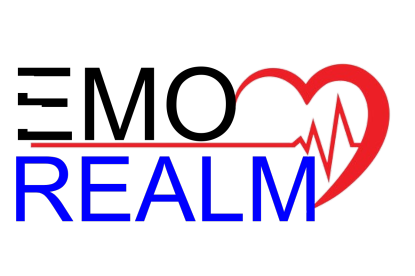Understanding Emotional Resilience
Emotional resilience means bouncing back when life gets tough, adapting even under pressure. With constant shifts around us, staying steady mentally helps keep things together – so it matters more than ever.
A key part of handling tough feelings is learning to notice and handle your reactions. It means seeing what you’re feeling, what’s going through your mind, also how you act in certain moments. Once someone gets clearer on these things, they can calm themselves down or choose smart moves rather than snap quickly when stressed.
A key part is growing a hopeful mindset about everyday life. Feeling strong emotionally isn’t about skipping tough moments – instead, it’s noticing chances to move forward when things get rough, holding on to self-trust, while knowing hurdles can be passed. Seeing things this way builds steady self-assurance and helps handle pressure in better ways.
Knowing how to handle emotions helps people build better ways to deal with stress while growing tougher minds – this leads to feeling better overall plus enjoying life more.
What Is Emotional Resilience?
Emotional resilience means bouncing back when things get tough, using calm and grit inside you. Instead of avoiding pressure, it lets folks face problems head-on, handle rough patches, or keep going anyway.
A key piece of bouncing back starts with seeing every feeling – good or tough – as okay. Resilience with emotions isn’t about blocking what comes up, but letting it exist without labeling or shoving it aside. When you work through your reactions instead of bottling them up, room opens for recovery and clearer choices when things get rough.
One key part of bouncing back is how you see things. Tough times don’t feel endless when you’re resilient – more like hurdles, not walls. Seeing problems as something you can work through – not give up on – keeps drive alive, lifts mood, builds better ways to handle stress.
Once you get what emotional resilience really means, people can work on it on purpose – so dealing with life’s curveballs becomes easier.
The Importance of Emotional Resilience
Feeling strong emotionally plays a big role in how we handle our thoughts and moods. When tough moments hit, it can soften the blow – letting someone bounce back after letdowns. Stress becomes easier to carry when this inner strength kicks in. Even amid chaos or grief, it keeps a person more steady on their feet.
People who bounce back quicker from tough times usually deal with pressure better, while staying less likely to feel overly worried or down. Because they stay calmer inside, their minds work sharper, emotions stay smoother, also energy doesn’t drain as fast.
Resilience boosts how people make decisions or tackle problems. Under pressure, those who bounce back easily tend to keep calm while weighing options instead of reacting fast. They look for practical fixes that actually help. That means smoother days around family, fewer hiccups on the job, plus healthier connections with others.
Staying strong isn’t just helpful – it boosts your mind and feelings over time because it prepares you for life’s ups and downs.
How Emotional Resilience Differs from Coping Mechanisms
While one deals with bouncing back from tough moments, the other’s about how you handle stress – different but linked.
| Aspect | Emotional Resilience | Coping Mechanisms |
| Focus | Long-term growth, adaptation, and inner strength. | Immediate reduction of stress/tough feelings (short-term fix). |
| Impact | Helps you address the root cause and grow stronger. | Offers temporary relief without solving the underlying issue. |
| Nature | Built over time through self-awareness and practice. | Quick strategies used in the moment to manage feelings. |
Coping tricks are quick fixes that help you feel better for a while – though just for now. They don’t fix much, yet they give breathing room when things get heavy.
Still, emotional strength builds over time – it helps you grow, adjust, stay steady through life’s ups and downs.
Coping tricks usually handle the first wave of emotions without fixing what’s really wrong. Certain routines might ignore tough feelings – or pretend they’re not there – giving quick comfort yet slowing down real healing over time.
Still, bouncing back means getting why you feel what you do, spotting habits, pulling lessons from hard times. Because facing struggles head-on builds stronger feelings inside, keeps balance longer – instead of just running away.
Focusing on this difference lets people pick habits that boost lasting health instead of quick fixes.
Developing Self-Awareness
Knowing yourself builds strength when emotions get tough. Getting to know how you feel helps you spot what brings on stress. Staying present during everyday moments makes a difference.
Recognizing Your Emotions
Figuring out exactly what you’re feeling matters a lot. When it’s happiness, irritation, grief, or worry – owning up to that emotion shows how it affects your decisions and moves. Knowing this pushes you toward replies that are thoughtful, not automatic.
Understanding Triggers and Stressors
Some moments make feelings stronger than usual. When you spot what sets them off, it’s easier to see when stress might hit – then handle it better. Seeing how you usually react keeps things from piling up. Instead of getting swamped, small shifts add up over time.
Cultivating Mindfulness
Notice your thoughts, feelings, or body signals without judging them. Stay focused right now by tuning in – this slows down quick reactions while boosting clear thinking.
Finding out how you tick gives clarity – so handling pressure feels smoother while growing tougher over time.
Building Positive Relationships
Good bonds help you bounce back from tough times. When people care, you feel accepted, safe, maybe even heard – stuff that builds grit inside.
Setting Boundaries and Communicating Effectively
Good connections grow when people talk openly while treating each other right. Putting up limits now and then keeps your inner world safe, so others notice what you really need. Speaking straight – without worrying about being judged – lets you share how you truly feel.
Nurturing Healthy Connections
Folks who stick together usually put in effort over time. Showing you understand, really hearing each other, or having someone’s back builds stronger bonds bit by bit. When things get tough, knowing there’s somebody helps ease the load – while good times feel even better when shared with people who matter.
People bounce back quicker if they’re linked up, listened to – also backed by others.
Practicing Self-Care
Looking after yourself helps you bounce back from tough times. This means making a conscious choice – so you stay healthy in body, mind, or mood.
Physical Health
A fit body helps your brain work better. Working out often, eating good food, or getting enough rest gives you strength plus calm when things get tough. If you take care of your body first, handling emotions feels less hard.
Creating a Self-Care Routine
Staying steady matters most. Trying things like writing down thoughts, sitting quietly, doing art stuff, or just unwinding each day can refill your inner energy. When you set up habits this way, looking after yourself doesn’t get pushed aside – it stays front and center.
Rest and Restoration
Take breaks – they’re necessary. Giving yourself time off cuts stress while boosting focus and peace. Stepping away from tasks, screens, or duties now and then resets your mood and energy.
Looking after yourself every day builds toughness while giving you the focus to handle whatever comes your way.
Developing Problem-Solving Skills
Facing issues calmly builds inner strength, since it lets people handle setbacks without getting overwhelmed. Solving things step-by-step keeps frustration low while boosting confidence over time.
Identifying Issues and Setting Goals
Chipping away at tough tasks by splitting them up helps you stay in control. Picking straightforward targets that actually fit your situation gives focus – also keeps stress from piling up.
Cultivating Adaptive Thinking
Staying ready to try fresh thoughts means shifting how you tackle problems. That mindset boosts originality, so people can roll with surprises as they come.
Reaching Out for Support
Reaching out shows courage. When you look for advice, tap into what’s around you, or work alongside someone, it opens new views – speeding up how fast issues get sorted.
Good at solving problems helps people handle tough situations without stress. Yet they stay focused on getting things done right away.
Conclusion
Developing emotional strength takes time, step by step. It means growing through different stages:
-
Deepening self-awareness
-
Nurturing healthy relationships
-
Prioritizing self-care
-
Strengthening problem-solving abilities
These pieces fit together, building a solid base for feeling good inside. Tough times still come – resilience doesn’t stop that – but it helps people handle them without falling apart, growing tougher through every bump.
FAQs
How long’s it gonna take to grow emotional strength?
Everyone’s path differs. Toughness grows slowly with steady action, thinking things over, or making a real push. As days pass, tiny routines lead to clear progress.
Does handling emotions well help when life gets tough mentally?
Sure. Being emotionally strong might lower your chances of feeling stressed, while also helping you handle feelings like worry, sadness, or being swamped – often in better ways. This kind of strength brings steadier moods, plus pushes people toward smarter strategies for dealing with tough times.
How do you start creating strength in tough times?
Begin by noticing how you feel and what triggers your reactions. Hang out with people who lift you up while setting aside moments just for yourself. Tackle challenges using practical fixes instead of getting stuck. Together, these moves create steady strength over time.



